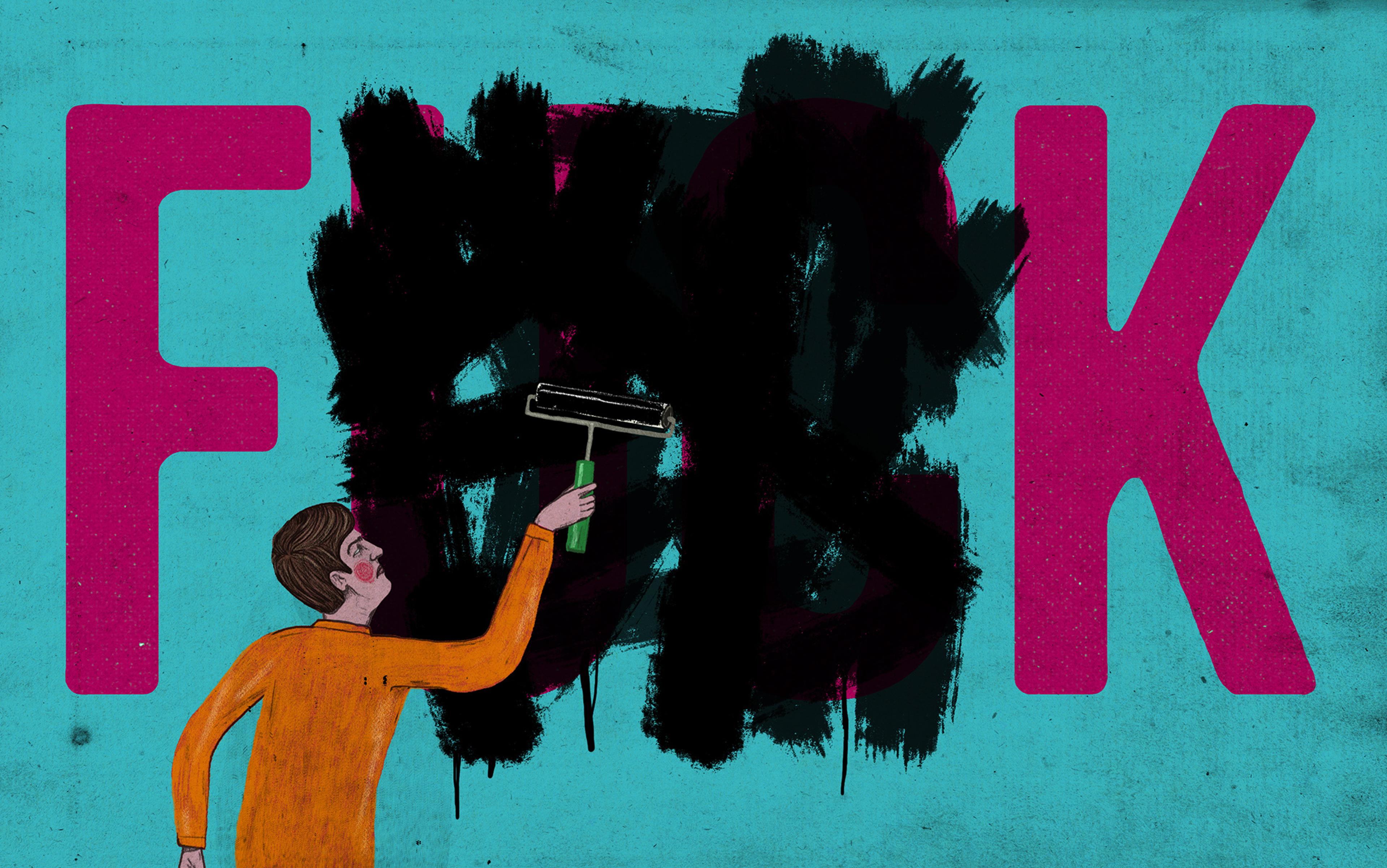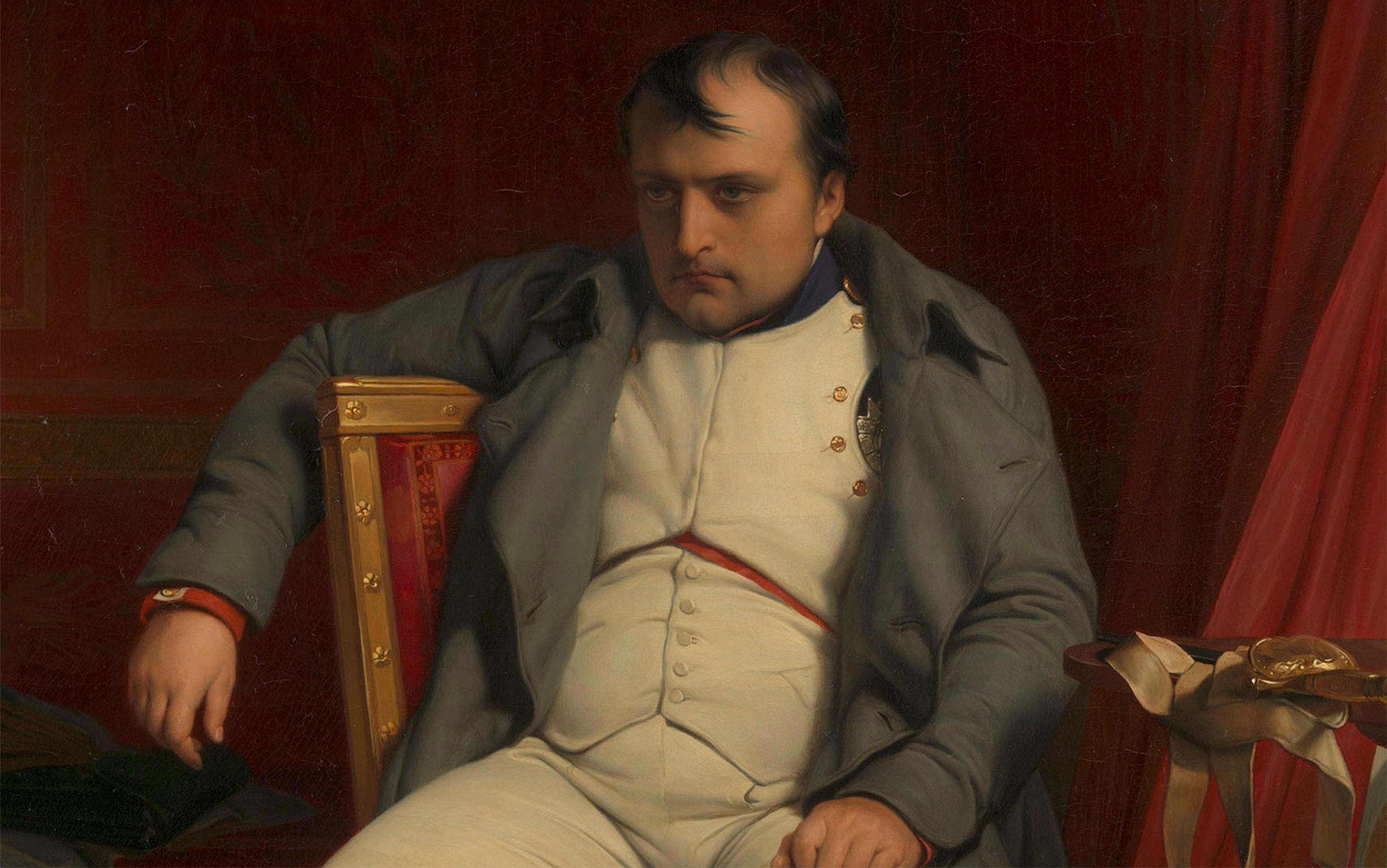Imagine the following. I’m planning a birthday celebration, and everyone’s invited. I start a group chat on Facebook to discuss the arrangements. While all this is going on, my sister, Fleur, does something to upset me. Genuinely remorseful, she later apologises and I tell her – a little frostily, perhaps – that it’s fine. Then she notices she’s been dropped from the birthday chat, and the celebration goes ahead without her. When she mentions this to me and asks if I cut her out because I was still upset, I say: ‘Don’t be silly. I didn’t cut you out. There must have been a Facebook glitch.’ She is confused: part of her is certain that I deliberately cut her out, while another part of her wonders whether she’s being over-sensitive.
Let’s say that Fleur is not being over-sensitive, and that I did cut her out deliberately. I did this because, despite her apology, I was angry about her behaviour. In fact, I was so upset that what I would have most liked to do really was swear angrily at her. Had I done so, she would have been offended and we would have probably had an argument, after which I would have felt more like accepting her apology (and I might have owed one myself). But, since I am oppressively British, I couldn’t contemplate giving vent to my negative feelings so directly. We don’t like confrontation. We prefer to keep hold of our resentment until we have to get it out somehow, and then we quietly do things like drop people from birthday party lists and vote to withdraw our country from beneficial political organisations.
This sort of behaviour has a name: passive aggression. It’s not just the British who are passive aggressive; to varying degrees, everyone is, sometimes. Scott Wetzler, a New York psychiatrist whose research focuses on passive aggression, calls it ‘sugar-coated hostility’. While the term has its roots in psychology and psychiatry, it has entered the public vocabulary, where it is used disapprovingly to describe expressions of hostility, resentment, contempt, etc, that are indirect and – at least on the surface – not impolite.
We don’t like to be on the receiving end of passive aggression. But is there anything wrong with it? And is it really any better than saying straightforwardly offensive things, such as ‘Piss off!’?
Let’s begin by noting that there is a sense in which what I do using my passive-aggressive response is the same as what I do when I yell something offensive. In each case, I convey to Fleur my contempt, anger and hostility. In the terminology of linguists and philosophers of language, both responses are ways of performing the same speech act.
The thinking behind the terminology of speech acts is that, when we talk to each other, we’re not merely using language to communicate information. We also use it to perform actions. Saying ‘I’m sorry’ is a way of apologising. Saying ‘Look out!’ is a way of issuing a warning. Saying ‘I promise to feed the cat this evening’ is a way of making a promise, and so on. In most cases, we can perform a speech act in various ways, including by not speaking at all. For example, while I can issue a warning by saying ‘Look out!’, I can also do it by saying ‘Danger!’, or even just by holding up a hand.
So my acting passive-aggressively towards my sister and my yelling profanities at her are two means to the same end. Both these responses convey to Fleur that I have not accepted her apology and that I have strongly negative feelings towards her, both of which have the potential to be offensive, regardless of how I convey them to her. Attempting to convey what is potentially offensive – or, at least, what the passive-aggressive person believes to be potentially offensive – is common to all instances of passive aggression. Indeed, our wish to convey something potentially offensive, and our fear of experiencing the discomfort and risking the confrontation associated with doing so, are the reasons why we express our negative feelings and beliefs in a ‘sugar-coated’ way in the first place.
If my passive-aggressive response and my sweary response are simply different ways of performing the same (potentially offensive) speech act, does this mean that neither way of performing it is more or less offensive than the other? Well, no. How we perform speech acts makes as much difference to their offensiveness as their content. Imagine you’re standing in my way and I want you to move so I can pass. My saying: ‘Excuse me, please’ will be as effective as saying: ‘Hey, fatty – move!’, but only one of these options is offensive.
while swearing at someone leaves them in no doubt that they are being insulted, being passive aggressive leaves room for doubt
At first glance, it seems obvious that a sweary response to Fleur would be more offensive than my passive-aggressive response. Everyone knows that swearing at people is one of the quickest and easiest ways to offend them. By contrast, my passive-aggressive response seems relatively polite. Quietly omitting someone from my birthday celebration chat is not in itself objectionable, and in some cases it might even be deemed tactful. And denying my negative opinions of someone is not necessarily objectionable either – indeed, we often think it good manners to conceal our true negative opinions of people, such as when they ask: ‘Am I ugly/boring/stupid/too old/badly dressed?’ and we reply, insincerely, with: ‘No, of course not.’ That we believe passive aggression to be less offensive than yelling something like: ‘May Donald Trump take a dump in your bath!’ is reflected in our behaviour choices – very often, we will act passive aggressively in situations where we wouldn’t contemplate swearing.
However, my passive-aggressive response to Fleur’s apology is not as benign as it first seems, for two important reasons. First, just like the sweary response, it aims at insulting or offending her. The difference is that, while swearing at someone leaves them in no doubt that they are being insulted, being passive aggressive does leave room for doubt. Ambiguity is a key aspect of passive aggression. While passive-aggressive behaviour is relatively polite according to one interpretation, invariably there is another interpretation according to which it is offensive, insulting or otherwise objectionable. The passive-aggressive person intends that her audience apply the latter interpretation to her behaviour, but its ambiguity allows her to insist, if challenged, that the inoffensive interpretation is the correct one. Passive aggression, as a result, is duplicitous in a way that more straightforwardly offensive behaviour, such as swearing, is not.
Second, the ambiguity of my passive-aggressive response to Fleur makes it objectionable in a way that my sweary response is not. It deprives her of the ability to challenge me effectively about what I am conveying to her, and it enables me to escape accountability for what I am conveying. Passive aggressors aim at what the British prime minister Stanley Baldwin enviously dubbed the ‘prerogative of the harlot’: power without responsibility. If my response to Fleur’s apology had been: ‘You arse-headed leaking wankbucket!’, then she could respond with: ‘Hey, I just apologised – you’re out of order!’ or ‘Well, if you don’t accept my apology, let’s talk about this and try to put things right.’ By contrast, my passive-aggressive response leaves me with the option of denying, when challenged, that I have behaved objectionably at all. It often happens that, when we are treated passive-aggressively, we anticipate that any attempt to challenge the passive-aggressive person will be unsuccessful, and so we let it pass without remark, sour as this can make us feel. To treat someone passive-aggressively is, in an important sense, to attempt to silence them.
But is passive aggression actually offensive? Isn’t the whole point of behaving passive-aggressively to avoid being offensive? This line of argument, while tempting, is implausible. When we act passive-aggressively, we are attempting to convey something that we believe is offensive. Passive-aggressive people, then, can hardly be unwilling to cause offence. Our willingness to be passive-aggressive at times when we’re unwilling to swear can be attributed to two factors. First, we realise that we are more likely to get away with passive aggression than with swearing. Second, passive-aggressive behaviour appears to be inoffensive and justifiable according to one interpretation, and this interpretation enables us to comfort ourselves with the self-deluded reassurance that we’re doing nothing objectionable. (The reassurance is self-deluded because we intend our audience to apply an interpretation to our behaviour according to which it is objectionable.)
Contrary to what we like to think, passive aggression is offensive. What constitutes offensiveness is a complex issue that we don’t have space to delve into here, so let’s instead follow the view taken by the philosopher Joel Feinberg in volume two of his huge study on the moral limits of criminal law, Offense to Others (1985). Feinberg held that offence arises when one experiences a disliked mental state (disgust, shame, anxiety, etc) that one attributes to the wrongdoing of someone else, and one resents that person for causing the disliked state. This makes passive-aggressive behaviour offensive, at least when the audience successfully identifies it as passive aggressive. In the birthday party scenario, Fleur is left with the disliked feeling of having been slighted, and she attributes this to my wrongdoing; specifically, to my pretending to have accepted her apology when, really, I have not accepted it, which she sees as unfair. She resents me for this, which is why she attempts to challenge me – and she resents me even more when her challenge is unsuccessful.
Sometimes we have to choose between expressing ourselves effectively and being inoffensive. We can’t always do both
So, my passive-aggressive response, like my sweary response, is offensive. Is there any inoffensive way in which I can convey my (potentially offensive) negative feelings to Fleur? I don’t think so; at least, not without reducing their potential to be cathartic. Perhaps the closest I can get to expressing my contempt, anger and hostility inoffensively involves describing politely and explicitly how I am feeling. I could calmly say to Fleur: ‘The way you have behaved towards me has left me feeling contemptuous, angry and hostile towards you.’ But this doesn’t do a good job of expressing my feelings if they are strong feelings. Often, strongly negative feelings are more effectively expressed when they are not explicitly described. (We’d consider a person who accidentally smashes her expensive new phone and screams a number of four-letter words to be angrier than a person who instead calmly says: ‘I am very angry about this.’) If I must express my contempt, anger and hostility to Fleur, and I want it to be satisfying, then swearing at her is as good a way as any. Sometimes we have to choose between expressing ourselves effectively and being inoffensive. We can’t always do both.
With this in mind, let’s end by reflecting that – contrary to what we’re often tempted to think, in practice if not always in theory – passive aggression is one of the worst ways to convey our negative feelings. If I have been caused upset, swearing enables me to express my feelings effectively at the expense of being offensive. Meanwhile, saying: ‘I’m jolly angry with you’ allows me to be inoffensive but at the expense of effectively expressing my feelings.
By contrast, passive aggression is both offensive and a poor way of expressing feelings. This can be harmful: as psychologists recognise, by expressing our negative feelings indirectly and denying them if challenged, we miss out on the benefit of having those feelings acknowledged and discussed sympathetically. If we must convey what is potentially offensive, we would do well to allow ourselves a choice between expressiveness and offensiveness. Sometimes we might choose both. But there is rarely a need to choose neither.






